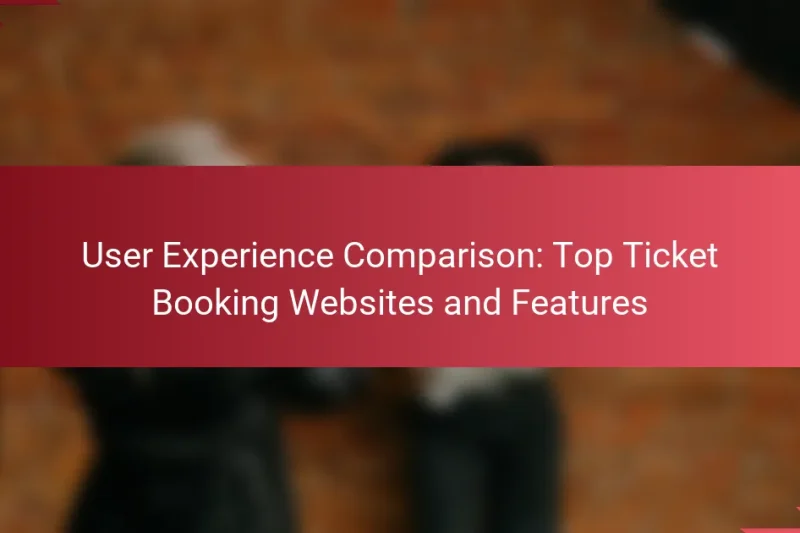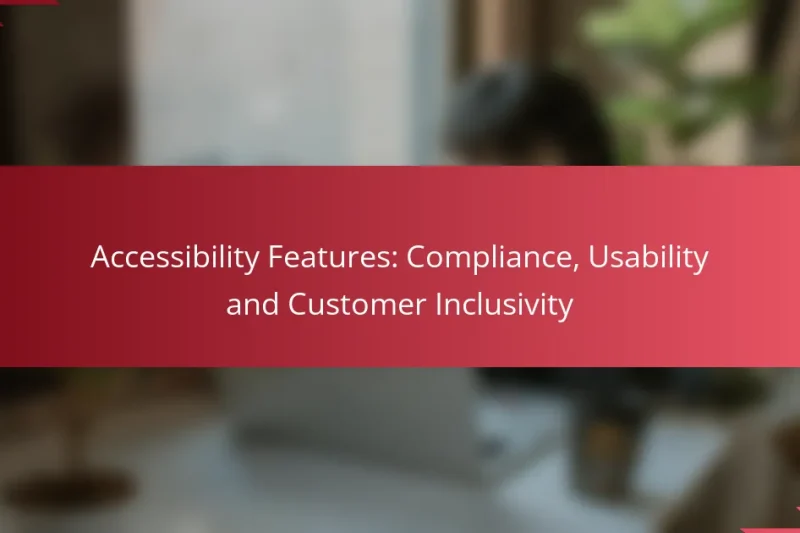Customer support plays a crucial role in enhancing the ticket booking experience by offering timely assistance … Customer Support: Role in Enhancing Ticket Booking Experience and SatisfactionRead more
User Experience in Ticket Booking
User experience plays a crucial role in the ticket booking process, as it directly impacts customer satisfaction and sales. By simplifying navigation, optimizing checkout, and offering personalized recommendations, platforms can create a more engaging and efficient experience. Additionally, ensuring mobile compatibility and providing real-time updates further enhance user interactions, making the booking process seamless and enjoyable.
Mobile Optimization: Benefits, Features and User Engagement
Mobile optimization is crucial for enhancing user engagement by ensuring that websites are fast, navigable, and … Mobile Optimization: Benefits, Features and User EngagementRead more
User Interface Design: Evaluation Criteria, User Feedback and Usability
User interface design plays a crucial role in shaping user experiences, with key evaluation criteria such … User Interface Design: Evaluation Criteria, User Feedback and UsabilityRead more
User Experience Comparison: Top Ticket Booking Websites and Features
In the competitive landscape of ticket booking websites, user experience plays a crucial role in guiding … User Experience Comparison: Top Ticket Booking Websites and FeaturesRead more
Accessibility Features: Compliance, Usability and Customer Inclusivity
Accessibility features play a crucial role in ensuring that digital content is compliant with standards that … Accessibility Features: Compliance, Usability and Customer InclusivityRead more
Load Times: Impact on User Satisfaction and Conversion Rates
In today’s digital landscape, load times play a crucial role in determining user satisfaction and conversion … Load Times: Impact on User Satisfaction and Conversion RatesRead more
User Reviews: Insights, Trends and Customer Sentiment
User reviews play a crucial role in shaping consumer perceptions and influencing purchasing decisions by offering … User Reviews: Insights, Trends and Customer SentimentRead more
How to improve user experience in ticket booking?
Improving user experience in ticket booking involves simplifying the process and enhancing personalization. Key strategies include optimizing the checkout process, offering tailored recommendations, ensuring mobile compatibility, providing real-time updates, and integrating customer support.
Streamlined checkout process
A streamlined checkout process minimizes the number of steps required to complete a ticket purchase. Aim for a single-page checkout that consolidates all necessary information, such as payment details and seat selection, to reduce friction.
Consider implementing features like guest checkout and auto-fill options for returning users. This can significantly decrease the time spent on the checkout page, ideally keeping it under a few minutes.
Personalized recommendations
Personalized recommendations enhance user experience by suggesting events based on past purchases or browsing behavior. Utilize algorithms that analyze user data to present relevant options, increasing the likelihood of additional sales.
For example, if a user frequently attends concerts, highlight upcoming shows in their preferred genre. This targeted approach can lead to higher engagement and satisfaction.
Mobile-friendly design
A mobile-friendly design is crucial as many users book tickets via smartphones. Ensure that your website or app is responsive, allowing for easy navigation and quick loading times across various devices.
Focus on touch-friendly buttons and clear, readable text. Aim for a design that requires minimal scrolling and tapping, enhancing usability for users on the go.
Real-time availability updates
Providing real-time availability updates ensures users have accurate information about ticket status. Implement systems that reflect current inventory levels, helping to avoid frustration from selecting sold-out options.
Consider using visual indicators, such as color coding or alerts, to show ticket availability. This transparency can improve trust and encourage users to complete their purchases promptly.
Customer support integration
Integrating customer support into the ticket booking process can significantly enhance user experience. Offer multiple channels for assistance, such as live chat, email, and phone support, to cater to different user preferences.
Make sure support options are easily accessible throughout the booking journey. Quick responses to inquiries can alleviate concerns and help users feel more confident in their purchasing decisions.
What are the key features of effective ticket booking platforms?
Effective ticket booking platforms prioritize user experience by incorporating essential features that streamline the purchasing process. Key elements include a user-friendly interface, secure payment options, and multi-device compatibility to cater to diverse customer needs.
User-friendly interface
A user-friendly interface is crucial for ticket booking platforms as it enhances navigation and reduces frustration. Clear layouts, intuitive menus, and straightforward search functions allow users to find and book tickets quickly.
Consider implementing features like filtering options for dates, locations, and ticket types. This helps users narrow down their choices efficiently, improving overall satisfaction.
Secure payment options
Secure payment options are vital for building trust with customers. Platforms should offer multiple payment methods, including credit cards, digital wallets, and bank transfers, ensuring users can choose their preferred method.
Additionally, compliance with security standards, such as PCI DSS, is essential to protect sensitive information. Providing visible security badges can reassure customers about the safety of their transactions.
Multi-device compatibility
Multi-device compatibility ensures that users can access ticket booking platforms from various devices, including smartphones, tablets, and desktops. This flexibility allows customers to book tickets anytime and anywhere, enhancing convenience.
Responsive design is key to achieving this compatibility. Ensure that the platform’s layout adjusts seamlessly across different screen sizes, maintaining functionality and readability for all users.
How does user experience impact ticket sales?
User experience significantly influences ticket sales by determining how easily customers can navigate the booking process. A seamless and intuitive experience can lead to higher sales, while a frustrating one can drive potential buyers away.
Higher conversion rates
Improving user experience directly correlates with higher conversion rates in ticket sales. When customers find a booking platform easy to use, they are more likely to complete their purchases. Simple navigation, clear calls to action, and minimal loading times can enhance this experience.
For instance, a website that loads in under three seconds can see conversion rates increase by a notable margin. Ensuring that the booking process is straightforward, with fewer than three steps, can further boost sales.
Increased customer loyalty
A positive user experience fosters customer loyalty, encouraging repeat purchases. When customers feel valued and have an enjoyable interaction with a ticketing platform, they are more likely to return for future events.
Offering personalized recommendations based on past purchases or preferences can enhance loyalty. Additionally, providing excellent customer support during the booking process can reinforce trust and satisfaction.
Positive word-of-mouth referrals
Great user experience leads to positive word-of-mouth referrals, which are crucial for ticket sales. Satisfied customers are likely to share their experiences with friends and family, expanding the reach of your ticketing service.
Encouraging customers to leave reviews or share their experiences on social media can amplify this effect. Consider implementing a referral program that rewards customers for bringing in new buyers, further leveraging positive experiences to drive sales.
What are common user experience pitfalls in ticket booking?
Common user experience pitfalls in ticket booking include complex navigation, lack of transparency in fees, and slow loading times. These issues can frustrate users and lead to abandoned transactions, ultimately impacting sales and customer satisfaction.
Complex navigation
Complex navigation can significantly hinder the ticket booking experience. When users encounter a confusing layout or unclear pathways to complete their purchase, they are likely to abandon the process. A streamlined, intuitive interface is essential for guiding users smoothly from selection to payment.
To improve navigation, consider implementing a clear menu structure and logical categorization of events. Use breadcrumbs to help users track their progress and easily return to previous steps without losing their selections.
Lack of transparency in fees
Lack of transparency in fees can lead to user distrust and frustration. Hidden charges that appear late in the booking process can cause users to feel misled, often resulting in cart abandonment. Clearly displaying all fees upfront helps build trust and encourages completion of the purchase.
To enhance transparency, provide a detailed breakdown of costs, including base price, taxes, and any additional fees. Consider using a simple table format to present this information clearly, making it easy for users to understand the total cost before they proceed.
Slow loading times
Slow loading times can severely impact user experience in ticket booking. Users expect quick responses, and delays of even a few seconds can lead to frustration and increased abandonment rates. Optimizing website performance is crucial for retaining potential customers.
To address slow loading times, ensure that images are optimized and scripts are minimized. Regularly test your website’s speed using tools like Google PageSpeed Insights and aim for load times under three seconds to keep users engaged and satisfied.
What criteria should be considered when selecting a ticket booking platform?
When selecting a ticket booking platform, consider factors such as user interface, payment options, customer support, and fees. A well-designed platform enhances user experience, while flexible payment methods and responsive support can significantly impact satisfaction.
User Interface and Experience
The user interface (UI) should be intuitive and easy to navigate. Look for platforms that offer a clean design, clear categories, and a straightforward booking process. A good UI reduces the time spent searching for tickets and minimizes frustration.
Consider platforms that provide a mobile-friendly experience, as many users book tickets on their smartphones. A responsive design ensures that users can easily access the platform from any device, enhancing overall convenience.
Payment Options
Flexible payment options are crucial for a seamless booking experience. Look for platforms that accept various payment methods, including credit cards, digital wallets, and local payment systems. This variety caters to different user preferences and can increase conversion rates.
Be aware of any additional fees associated with payment methods. Some platforms may charge extra for certain payment types, so it’s essential to review the total cost before finalizing a booking.
Customer Support
Effective customer support can make a significant difference in your booking experience. Choose platforms that offer multiple support channels, such as live chat, email, and phone support. Quick response times and knowledgeable staff can help resolve issues efficiently.
Check for user reviews regarding customer service experiences. A platform with consistently positive feedback in this area is likely to provide better assistance when problems arise.
Fees and Charges
Understanding the fees and charges associated with a ticket booking platform is essential. Some platforms may have hidden fees that can increase the total cost of your tickets. Look for transparency in pricing, including service fees and cancellation policies.
Compare different platforms to find the best value. While some may offer lower ticket prices, higher service fees can negate those savings. Aim for a balance between ticket cost and overall fees to ensure a satisfactory booking experience.






